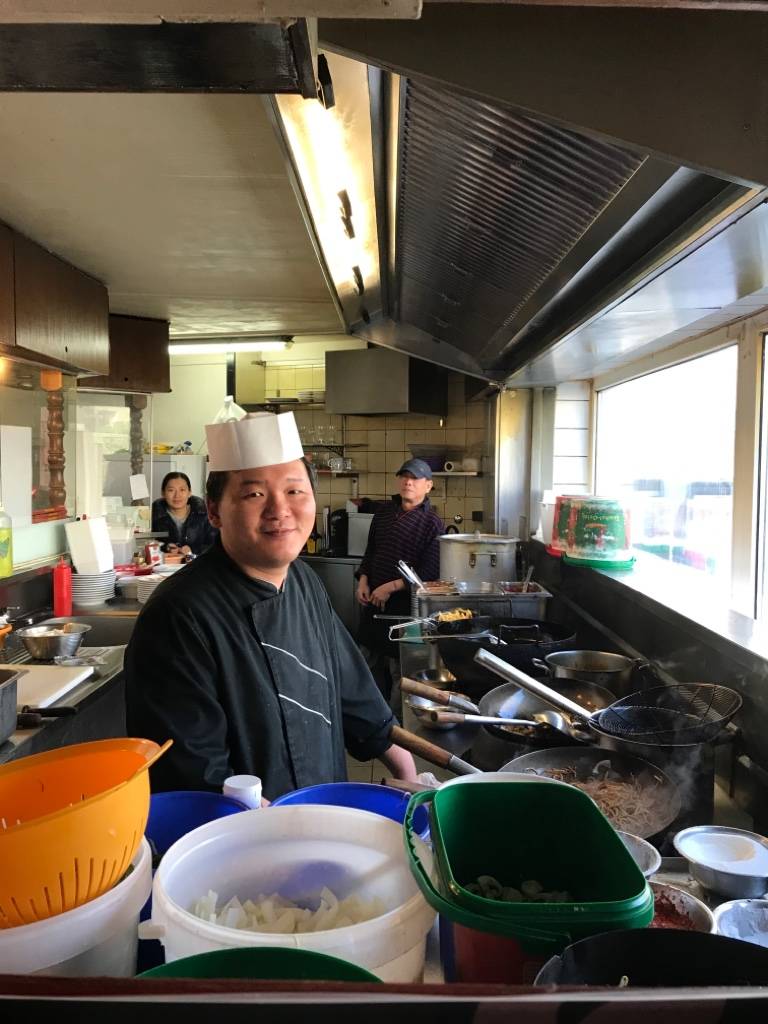Asian restaurants in Bonn affected Fear and prejudices surrounding the coronavirus
Bonn · Asian restaurants in Bonn currently have fewer customers. Face masks are in short supply in pharmacies. But most Bonn residents and doctors remain calm about the situation.
Almost 32,000 people are infected and around 650 people have died worldwide, that is the current status of the coronavirus. The fact that almost 2,000 people have already completely recovered from the virus is less known. The fear of becoming afflicted with the infectious disease is clearly felt by some in Bonn. Especially people with Asian appearance are currently being confronted with discrimination more often.
"Recently, the parcel delivery person simply put the packages outside the door, no longer asking for my signature," says pharmacy student Mariel Zhou (22) from Bonn, whose father comes from China. She is not the only one; her cousin had similar experiences with delivery people.
Bonn's Chinese restaurants are also experiencing a decline in customers. Tang Choong (41) from China Imbiss in Bonn-Dransdorf: "We are definitely noticing fewer guests. Whether this is due to the coronavirus or carnival, I cannot say." In the Peking Garden, guests often queue up until the food containers at the buffet are refilled. Lately, however, hardly any guests are coming. "People call and cancel reserved tables out of fear," says owner Chen Xiahong (46). His wife Kim says that her son is being teased at school because of his origins.
Sociology Professor Remi Maier-Rigaud, who teaches sustainable social policy at the Bonn/Rhine-Sieg University of Applied Sciences, sees a sociological phenomenon in this behavior. Such discrimination is a typical example of intuitive, irrational action. These are archaic reflexes, he says, because "if you were to make an objective assessment of the risk of infection in Germany, you would notice that lightning is more likely to strike", he explains.
For safety reasons, employers nevertheless often demand negative diagnoses from employees who have returned from China.13 cases of corona are now known throughout Germany, none of them in NRW. All infected persons are in good condition, according to authorities. Doctors felt better informed and prepared for the new coronavirus than during the Sars epidemic (2002/2003). "There are clear recommendations for action from the Robert Koch Institute," said Anna-Maria Eis-Hübinger from the Virological Institute of the University Hospital in Bonn.
Corona is the seventh mutation form of corona viruses, explains the virologist. The first four known forms of corona were more harmless and spread all over the world. Often the symptoms go unnoticed. Eis-Hübinger herself has already tested positive for two forms of corona in the past. These were often accompanied by cold symptoms. More dangerous, however, are the corona viruses Sars, Mers and also the novel 2019-nCoV from China. However, Eis-Hübinger does not see any acute threat: "I don't think the people in Bonn need worry. The wave of flu caused by influenza viruses counts for much higher death rates.”
Nevertheless, demand for respiratory protection and disinfectants remains high in pharmacies. In many places, breathing masks are already sold out and no longer available. "Asian customers sometimes bought fifteen packs at once to send them to China," says pharmacist Gertrude Mevissen (48) from Kessenich. The mother of a three-year-old boy suffering from leukemia recently wanted to fill a prescription for a children's respiratory mask, which the manufacturer no longer had in stock. "Respiratory masks for sick children should always be in stock," she appealed to hospitals.
Doctors in Bonn remain largely calm in connection with the coronavirus. Johannes Just, general practitioner from Beuel, says: "Most Bonn residents remain calm." Only in the case of upcoming trips abroad is an increased demand for preventive measures noticeable. Another general practitioner from Bonn has had a different experience. "My Asian patients have often mentioned that they are looked at strangely in public or avoided in trams.” Chinese restaurant visitor Eva Müller (60) takes it with a sense of humor: "I have weighed up the pros and cons: Do I like the food better or do I rather risk Corona? I prioritize the food.”
Orig. text: Abir Kassis
Translation: ck



